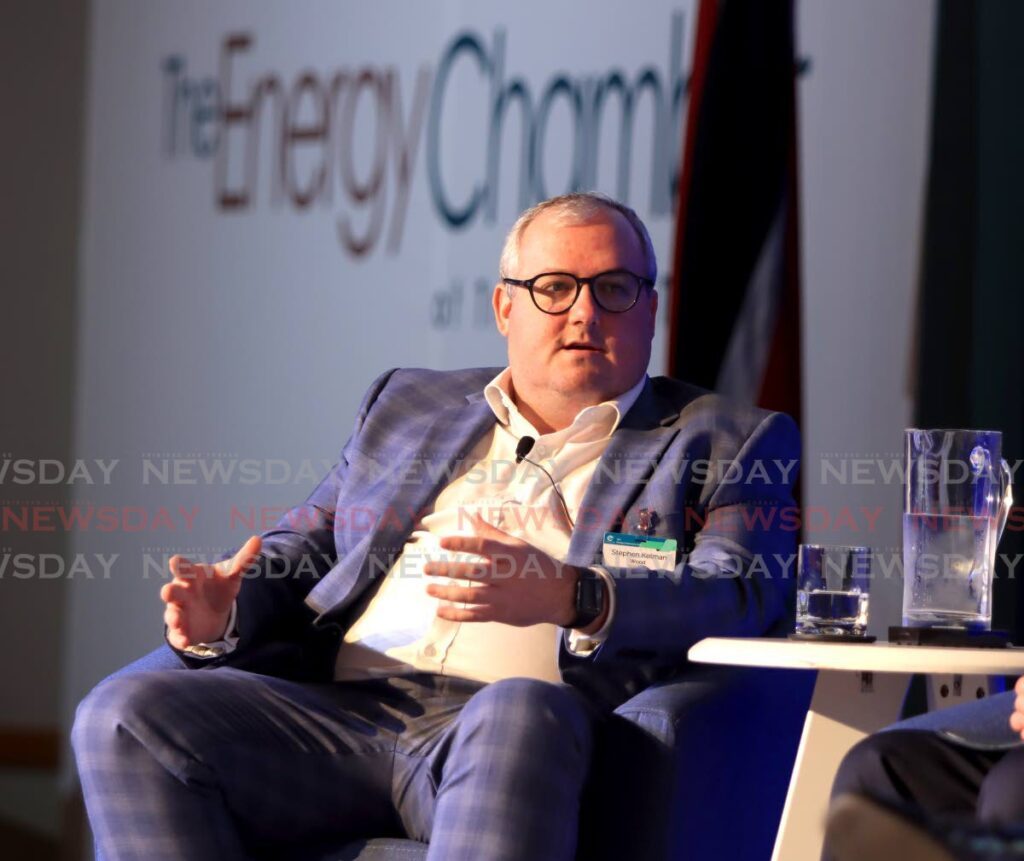Trinidad and Tobago energy leaders discuss challenges, innovation

IN THE EVOLVING landscape of the energy sector, industry leaders gathered to discuss challenges, opportunities and strategies for managing the country’s energy assets.
At a panel discussion at the Hyatt in Port of Spain on January 23, on day two of the Energy Chamber’s three-day energy conference, Stephen Kelman, operations director at Wood PLC, said there was a pressing need to focus on data management to enhance asset performance.
Kelman called this focus pivotal, and introduced a chart depicting the correlation between data maturity and performance measures, identifying key areas: uniform preventive maintenance optimisation, backlog review, spare parts, inventory optimisation and predictive maintenance techniques.
He said his company faces an industry challenge of waiting for spare parts, ageing equipment and adapting maintenance strategies. He urged exploring solutions using data to streamline preventive maintenance and optimise backlog management.
Addressing challenges faced by Wood PLC, he cited customer feedback and industry-wide issues, saying a backlog had accumulated over several years as a result of the covid19 pandemic.
Kelman stressed the importance of capacity, both in terms of workforce and execution capabilities and the persistent skills gap in the industry.
“The more mature your data is, the better you should be able to use it. By focusing on these key areas, we believe we can significantly improve reliability, increase production and reduce overall costs.
Erik Keskula, CEO of Heritage Petroleum, echoed the sentiment of urgency and stressed the need to move faster, safely and with focus, also outlining critical areas he said require immediate attention.
“Firstly, we must break from the business-as-usual mindset that often protects the status quo. Understanding the reasons for delays is crucial.
“Secondly, breaking down siloed decision-making is essential for fostering collaboration and agility.
“Thirdly, streamlining processes is paramount for efficient and effective operations.
“Finally, partnering and working together across the value chain is crucial for driving efficiency and bringing sustainable, affordable energy to the nation.”
He acknowledged the delays in execution, from licensing rounds to production.
“A relentless streamlining of our processes is paramount. We must partner to bring sustainable, affordable energy to the nation. For us to navigate through these changes, data-driven decision-making is essential. It’s about turning data into information to gain insight.”
Reflecting on the macro elements shaping the industry, Keskula discussed the shift from viewing the industry as a sector to an ecosystem and the complexity of an interconnected system comprising stakeholders, technology, infrastructure, regulation and policy, requiring an innovative approach.


Comments
"Trinidad and Tobago energy leaders discuss challenges, innovation"